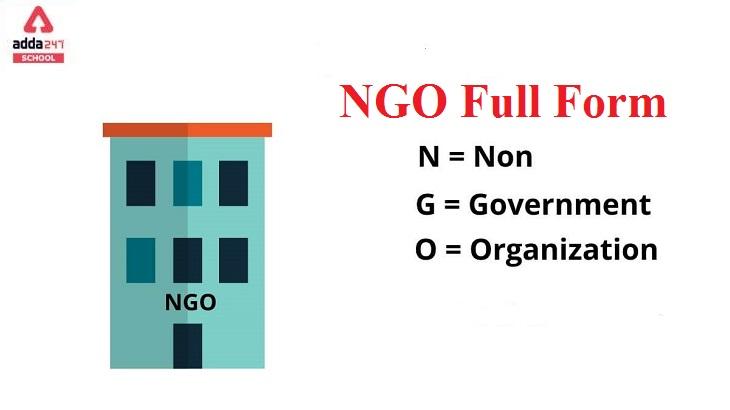Table of Contents
NGO Full Form in English
NGO Full Form, the abbreviation, is a non-governmental organization. A non-governmental organization (NGO) is a community of individuals from several countries who work together but are not affiliated with any government.
Non-governmental organizations are generally non-profit, which means they aren’t seeking to make money for the people who manage them.
A legally organised, non-governmental organisation (NGO) created by legal or equitable people with no participation or representation from any government is referred to as a non-governmental organization (NGO). In circumstances where NGOs are supported entirely or partially by governments, the NGO retains its non-governmental status and refuses to admit government representatives as members.
In contrast to “intergovernmental organization,” “non-governmental organization” is a term that is commonly used but does not have a legal definition. These types of organizations are referred to as “civil society organizations” or by other titles in many jurisdictions.
Read About: Global Warming
NGO Full Form in Hindi ( NGO Full Form )
एनजीओ हिंदी में गैर-सरकारी संगठन के रूप में जाना जाता है। एक गैर-सरकारी संगठन (एनजीओ) कई देशों के व्यक्तियों का एक समुदाय है जो एक साथ काम करते हैं लेकिन किसी भी सरकार से इनका संबंध नहीं होता है।
एक कानूनी रूप से संगठित संगठन जिसे कानूनी या न्यायसंगत लोगों द्वारा बनाया गया है, जिसमें किसी भी सरकार की भागीदारी या प्रतिनिधित्व नहीं है, गैर-सरकारी संगठन (एनजीओ) के रूप में जाना जाता है। ऐसी परिस्थितियों में जहां एनजीओ को पूरी तरह या आंशिक रूप से सरकारों द्वारा समर्थित किया जाता है, एनजीओ अपनी गैर-सरकारी स्थिति को बरकरार रखता है और सरकारी प्रतिनिधियों को सदस्यों के रूप में स्वीकार करने से इनकार करता है।
“अंतर सरकारी संगठन” के विपरीत, “गैर-सरकारी संगठन” का आमतौर पर उपयोग तो किया जाता है लेकिन इसकी कोई कानूनी परिभाषा नहीं होती है। इस प्रकार के संगठनों को कई न्यायालयों में “नागरिक समाज संगठन” या अन्य शीर्षकों के रूप में संदर्भित किया जाता है।
Read About: UNESCO Full Form
NGO Full Form in English: Non-governmental Organizations Aims and purposes
NGOs undertake a variety of service and humanitarian roles, bring citizen concerns to governments, promote and monitor policies, and stimulate political participation through the supply of information. They are task-oriented and motivated by people with a shared interest. Some are centered on a single issue, such as human rights, the environment, or health.
NGO’s work to improve the lives of the impoverished and backward members of society. Furthermore, NGOs’ primary duty is to close the gap between inequities and unfair treatment.
Read About: Biosphere Reserve
Types of NGOs and Their Full Form
INGO
An international non-governmental organization. The Council of Europe’s Conference of INGOs, for example, has more than 300 participant INGOs.
CONGO
GONGOs, according to Foreign Policy, are government-backed non-governmental organizations created to advocate on behalf of repressive regimes in international forums.
QUANGO
A quango is a quasi-autonomous non-governmental entity that receives support from the government. The government appoints the organization’s top officials. Quangos are viewed as useless and are frequently staffed by quangocrats.
ENGO
Greenpeace or the World Wildlife Fund, for example, are environmental non-profits. In addition to working for the environment, both organizations operate abroad. NGOs are a common abbreviation for non-governmental organizations.
| CBSE Full Form | ICSE Full Form |
| CEO Full Form | SOP Full Form |
| AM PM Full Form | ACP Full Form |


 SOF Olympiad Exam Date 2024-25 Out, Chec...
SOF Olympiad Exam Date 2024-25 Out, Chec...
 NEET Revised Answer Key 2024 Out, Downlo...
NEET Revised Answer Key 2024 Out, Downlo...
 Karnataka PGCET Admit Card 2024 Out, Dow...
Karnataka PGCET Admit Card 2024 Out, Dow...












